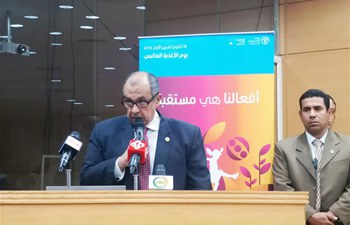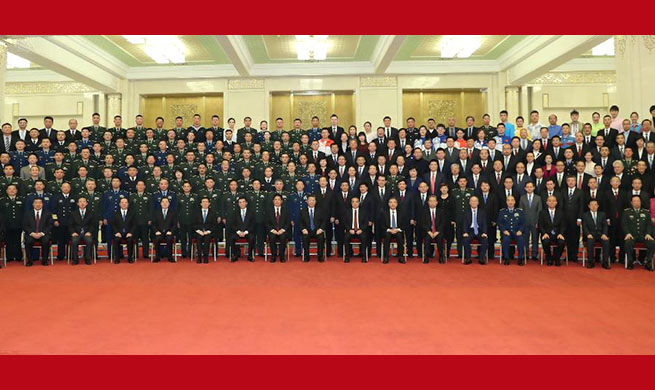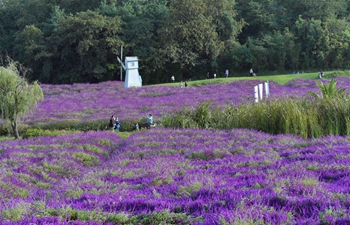WELLINGTON, Oct. 17 (Xinhua) -- New Zealand researchers are seeking the help of divers, snorkelers and lobster potters in the Hauraki Gulf and Bay of Plenty to learn more about how rock lobsters are faring.
Researchers at the National Institute of Water and Atmospheric Research (NIWA) will be stationed at boat ramps in the region at various times for the next five months where they will approach recreational fishers and ask them to participate in a research survey about their catch and effort when targeting rock lobsters, a statement said on Thursday.
The area covers a large stretch of North Island coastline, which is an important fishery for commercial and recreational fishers.
The government made cuts to commercial catches last year in a bid to rebuild the rock lobster population in this area, after low stocks were identified. A reduction to the recreational daily bag limit in this area is also under consideration, the statement said.
Fisheries New Zealand's Director of Fisheries Management Stuart Anderson said the government undertook actions to rebuild the fishery in 2018, and this work will further support their understanding of the fishery.
NIWA fisheries scientist Bruce Hartill said the purpose of the survey, which begins this month, is to understand whether the lobster population is rebuilding as intended and to monitor changes in recreational harvesting over time.
"It is important we get up-to-date accurate information to enable fishery managers to make decisions on the best data available. What we need to find out is whether recent management measures are working and whether lobster numbers have returned to sustainable levels," Hartill said.
The researchers have selected 41 days at random until February on which to conduct the surveys that will happen at 12 boat ramps. The survey will continue at the same time for the next five years, he said.
People returning from gathering lobsters will be asked by interviewers if they can measure their catch, when and where they've been fishing and which methods they used. The interviewers will also ask other fishers to participate in the survey, so the information collected can be used to help manage other species, he added.













